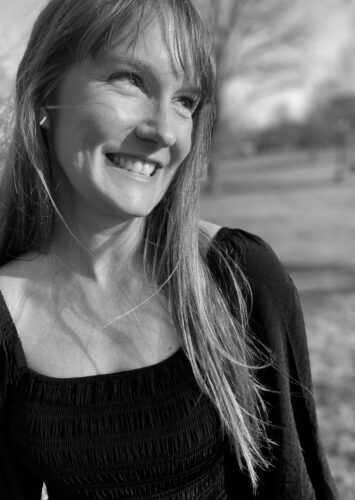Love Letter to Who Owns the Heavens became a book when I realized I was writing about power.
It sounds simple enough, maybe obvious, reductive even, considering the title (which was not always the title) and given that many of the poems circulate around the militarization of the drone. But I didn’t know, at first, how power bound the other parts of the book—the love poems, the elegies. I knew they were also a part of the book, but I didn’t know how, other than what I didn’t want to do, i.e., making neat equivalences, dangerous metaphors of the public and private life.
I started writing these poems when I was living in Houston. I was dating someone who Worked In Oil, who largely subsidized my life for a year. I was waiting tables at a fancy new restaurant whose patrons included Beyoncé, Mos Def, and varying groups of The Texans. One of the owners, rumor had it, had a not-entirely-small role in Enron. Wealthy men brought their hired, metallic dress-wearing women, and I brought them lobes of foie gras. I was watched by them. I was watched by the always-yelling chefs. And I was watched, always, when I came home to the home I didn’t pay for.
Fast forward a year when I left Houston, left that man, and moved to California to attend the Stegner workshop at Stanford. I had a handful of poems about drones, a handful of poems about my dead father, a handful of poems about a new long-distance relationship with a man I had met in California. I had been trying to make the things in the manuscript speak to each other. I had been making bad poetry decisions, aestheticizing violence, likening various forms of distance that had not all that much to do with each other. Or at least I didn’t yet know what they had to do with each other. I thought about scrapping the whole thing, starting over with less thorny territory. But I couldn’t, because it was my very distance from the realities of war that continued to haunt me. And that’s when I realized that I didn’t just need to write about it, but I needed to write about writing about it.
Incorporating poetry into my poems—via the ars poetica, literary allusion, self-conscious questions about poetry and process—unlocked a kind of ambiguity I hadn’t yet been able to access, an aesthetic distance that wasn’t quite as self-righteous, one that would allow me to be a fuller self—flawed, funny, fucking up. I had slept in bed with oil. I served it oysters and poured it glasses from magnums of Champagne. I was part of it when I thought I had been standing outside of it, criticizing it, other-than. When distance started collapsing—walking below Condoleezza Rice’s office in Palo Alto, the taxes I paid and what they paid for—I gained a new perspective. One that isn’t perfect, will never be perfect, because it is human. Which is what I forgot, for a moment, a poem needs to be.
